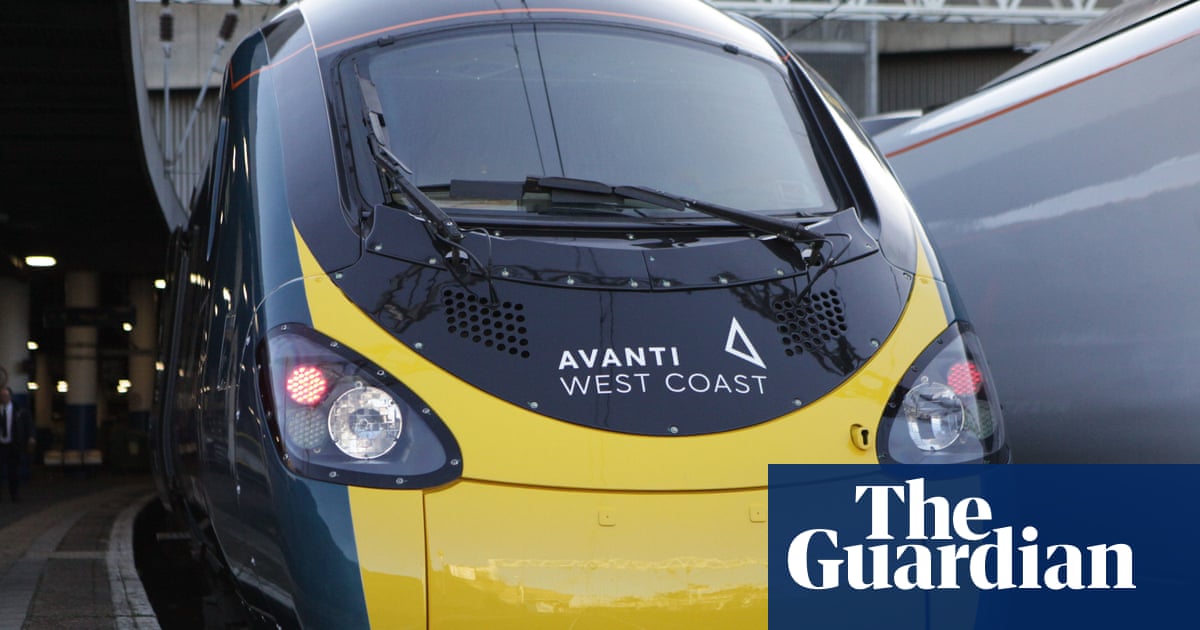Unions hail UK’s rail renationalisation bills as a return to ‘public service’

Rail unions have said Britain’s trains will be “run as a public service, not for private profit”, as the new government announced early steps to renationalise the railways in the king’s speech.
Labour will renationalise rail with two separate bills, decoupling laws to take train services into public ownership from more complex legislation to set up a dedicated public body, Great British Railways (GBR).
Rail leaders and unions welcomed the announcement of a long-awaited overhaul of the industry – although private train operators warned nationalisation could increase costs, as their exit from the industry was confirmed alongside a slew of new transport legislation announced in Wednesday’s king’s speech.
The government said that public ownership would be the “default position” for train operators, while bus services could also be owned and controlled by local councils under other legislation.
The passenger railway services (public ownership) bill will overturn the status quo, under which four of the 14 national train operators are being run by a state-owned “operator of last resort”, which only takes over after a private firm’s failure.
Services will return into state hands as remaining contracts expire over the coming years – or possibly earlier if lawyers advise of potential grounds for breach of contract. Avanti West Coast bosses were put on notice to improve performance in a meeting with the transport secretary, Louise Haigh, on Tuesday.
A separate railways bill will establish GBR in a similar way to the reform proposed under the Conservatives in 2021, creating a “directing mind” running a “unified and simplified” rail system, with track and train managed by the same organisation.
Private open access train operators – such as Hull Trains or Lumo – which offer a service run by a firm specialising in a single route, will continue where a specific route is deemed to add value and capacity.
Some of rail’s immediate problems, including the industrial relations breakdown that has plagued Avanti and others, may be ameliorated by measures in Labour’s employment rights bill – marking a swift end to Conservative plans for minimum service levels during strikes.
The RMT’s general secretary, Mick Lynch, said the union welcomed the announcements on trade unions and public ownership, adding: “We will actively engage with the government on the pay issues in our sectors which can be resolved quickly.”
Mick Whelan, the general secretary of the train drivers’ union Aslef, said renationalisation was “the right decision, at the right time … an end to the failed fragmentation of our network”. He said the railway would now be “run as a public service, not for private profit”.
Darren Caplan, the head of the trade body the Railway Industry Association, said it was “a strong legislative programme for driving growth” and said GBR’s “strategic oversight and responsibility for rail can focus on meeting growing passenger demand and boosting industry revenues”.
after newsletter promotion
Rail Partners, which represents private train operators, said the commitment to create GBR was “an important milestone”. However, its chief executive, Andy Bagnall, added: “Full nationalisation is a political not a practical solution, which will increase costs over time.”
The high-speed rail (Crewe-Manchester) bill was carried over from the previous government – although the government stressed it would not overturn Rishi Sunak’s controversial axing of the northern leg of HS2. Retaining the bill allows progress on parts of HS2 that intersected with the proposed “Northern Powerhouse Rail” line across the north without further legislative delay.
Public ownership of buses will also be a possibility under new laws. The better buses bill will extend franchising powers from metro mayors to all local authorities, and remove the bar on contracting municipal bus companies to operate routes. The government said it would enable local leaders to deliver bus networks reflecting the needs of their communities and give councils more control over funding.
A fourth transport bill will establish a “revenue certainty mechanism” for sustainable aviation fuel (SAF), a measure sought by the airline industry and investors, to help pave the way to build plants making SAF in Britain.
Despite the scepticism from environmental groups, SAF is championed by airlines as the best short-term tool – if not the only one, bar flying less – to decarbonise their operations. Labour also hopes the nascent industry will bring thousands of jobs.
Related
Why investing in women is a vital next step for…
Get Nadine White's Race Report newsletter for a fresh perspective on the week's newsGet our free newsletter from The Independent's Race CorrespondentGet our fre
Business secretary signals major shift on electric car policy to…
In a determined effort to retain Nissan’s manufacturing presence in Britain, Business Secretary Jonathan Reynolds has vowed to implement “substantial c
Joint Statement: Business Secretary and Fujitsu Services Ltd
Business and Trade Secretary Jonathan Reynolds today (Friday 7 March) met chiefs for Fujitsu in Tokyo to begin talks over the cost of redress for victims of th
UK foreign secretary backs multilateral defence funding for Europe
UK foreign secretary David Lammy has said that a new multilateral fund will be needed to secure Europe’s defence as he confirmed that Britain is “open to”













